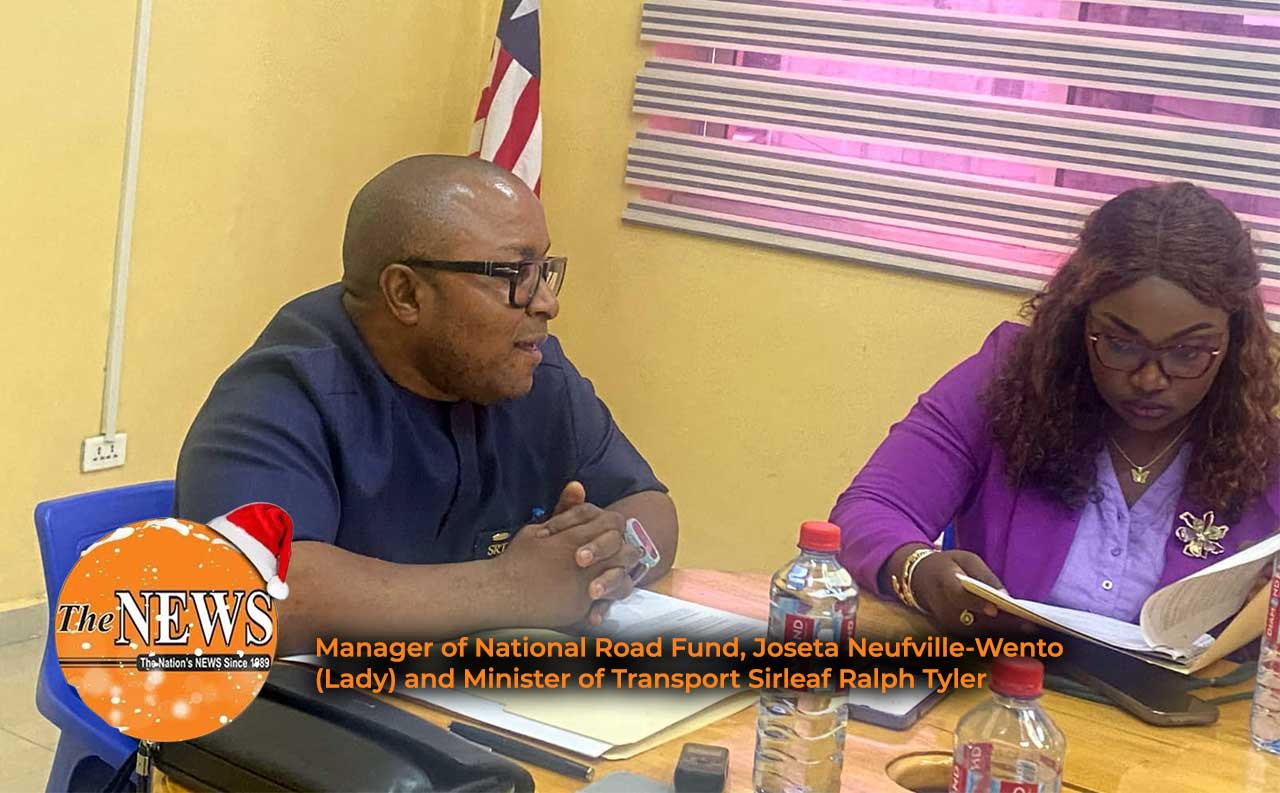The Ministry of Transport (MOT) in collaboration with the National Road Fund (NRF) has embarked on an Axle Load Control implementation and awareness campaign across the country.
Speaking at the signing ceremony between the Ministry of Transport and WIDRA Liberia in Sinkor on Monday, December 16, 2024, Minister of Transport Sirleaf Ralph Tyler said it is important to understand the dangers of operating overloaded vehicles, particularly in relation to Axle Load Control.
He said overloaded vehicles cause excessive wear and tear on roads, bridges, and other critical infrastructure, leading to costly repairs and maintenance, while compromising vehicle handling and braking, increasing the risk of accidents and endangering both drivers and road users.
“The project is designed to ensure that drivers comply with weight limits and Axle Load Law and Regulations to promote safe and efficient transportation. By properly distributing weight and adhering to regulations, drivers can help preserve the integrity of our roads and ensure public safety,” Minister Tyler said.
He said overloaded vehicles do not only threaten road safety but also escalate the risk of accidents and fatalities. Axle Load Control minimizes these risks, thereby reducing the economic burden on the National Road Fund caused by accident-related damage and emergency infrastructure repairs.
“Properly maintained roads reduce vehicle operating costs, improve logistics efficiency and facilitate trade. This leads to increased economic activity and higher tax revenue, a portion of which supports the National Road Fund,” Tyler said.
Tyler said Axle Load Control is key to ensuring infrastructure reliability, sustaining economic activities, and optimizing funds for further development.
Axle Load Control and Road Sustainability
The Manager of the National Road Fund Joseta Neufville-Wento emphasized that Axle Load Control is vital for preserving road infrastructure, a significant national investment, in a cost-effective manner.
“Overloaded vehicles cause premature deterioration of pavements and bridges. Axle load Control ensures compliance with weight regulations, reducing damage and lowering maintenance costs,” she said.
The National Road Fund executive said preventing overloading extends the lifespan of road infrastructure, allowing funds to be redirected toward critical development projects, such as road upgrades and new construction, rather than recurring repairs.
“This approach improves the efficiency and effectiveness of the Road Fund, ensuring better returns on investment. Systems like weighbridges generate revenue through fines for non-compliance, which can be reinvested into road maintenance and expansion,” she said, adding that effective monitoring serves as a deterrent to overloading, encouraging compliance with road user fees.
Strategic Role of Axle Load Control
Atty. Dave Dahn Diawoo Sr., a Transport Consultant/Coordinator of the Technical Support Unit (TSU) at the Ministry of Transport, described Axle Load Control as a strategic measure for sustaining the National Road Fund.
“By minimizing road damage, reducing maintenance costs, and enhancing revenue streams, axle load control supports economic development and the longevity of road infrastructure,” Diawoo said.
He said Axle Load Control is not only crucial to sustainability and effective management of the National Road Fund but to the overall economic growth of Liberia.
Meanwhile, he said penalties will be imposed on drivers operating overweight vehicles, with fines directed to the government’s revenue account for redevelopment of roads, urging drivers to follow regulations, drive responsibly, and support efforts to ensure safer, longer-lasting roads for all.



